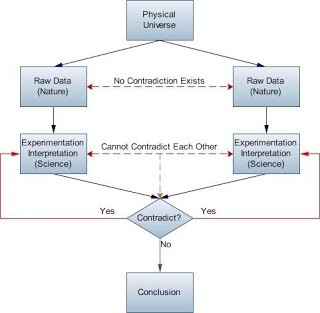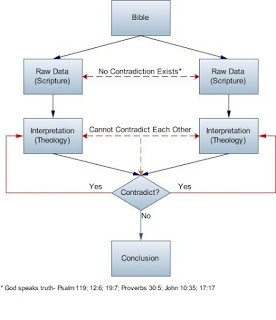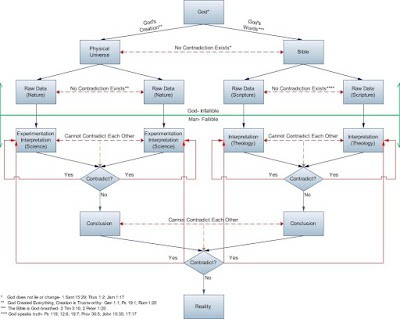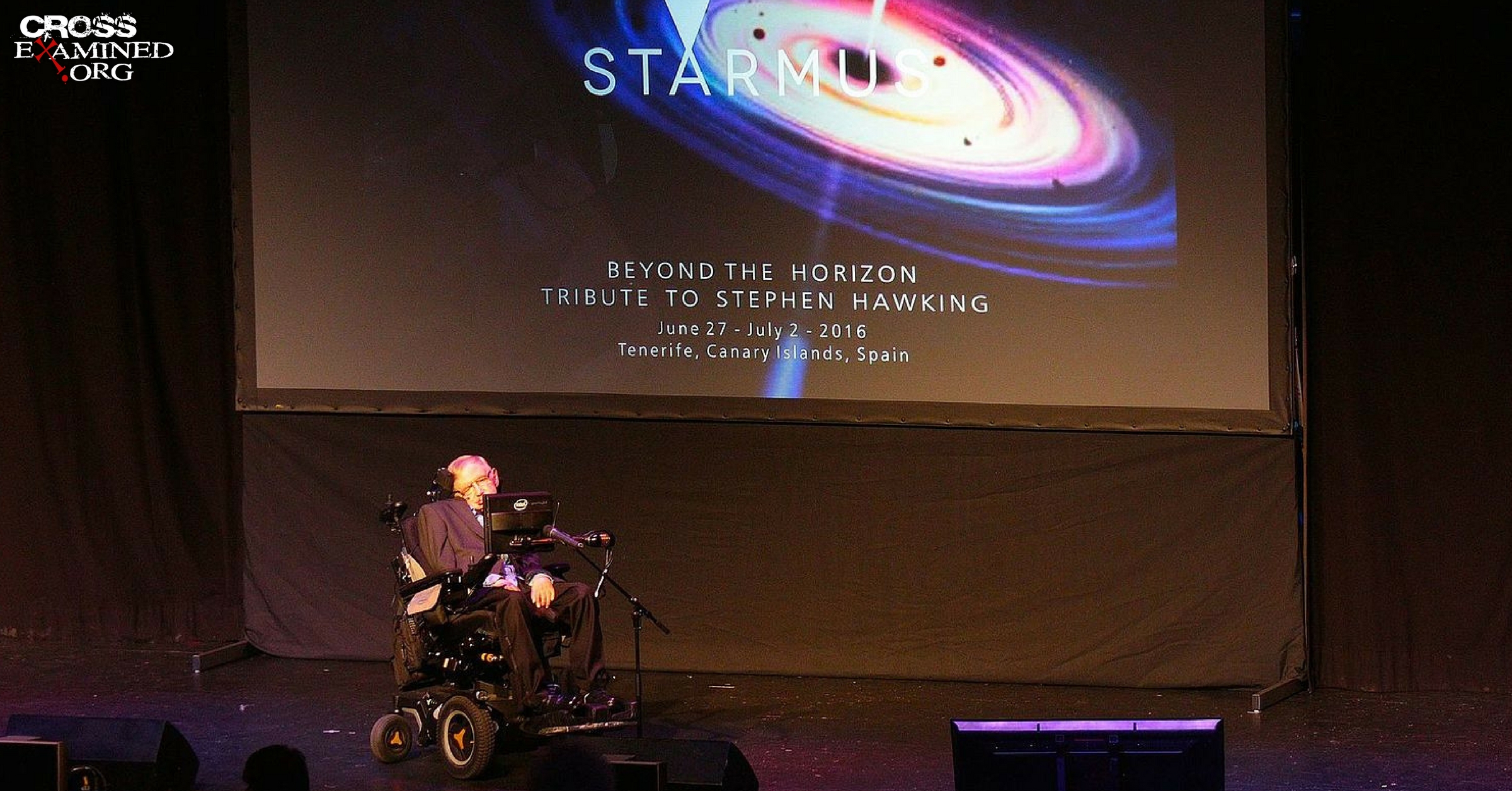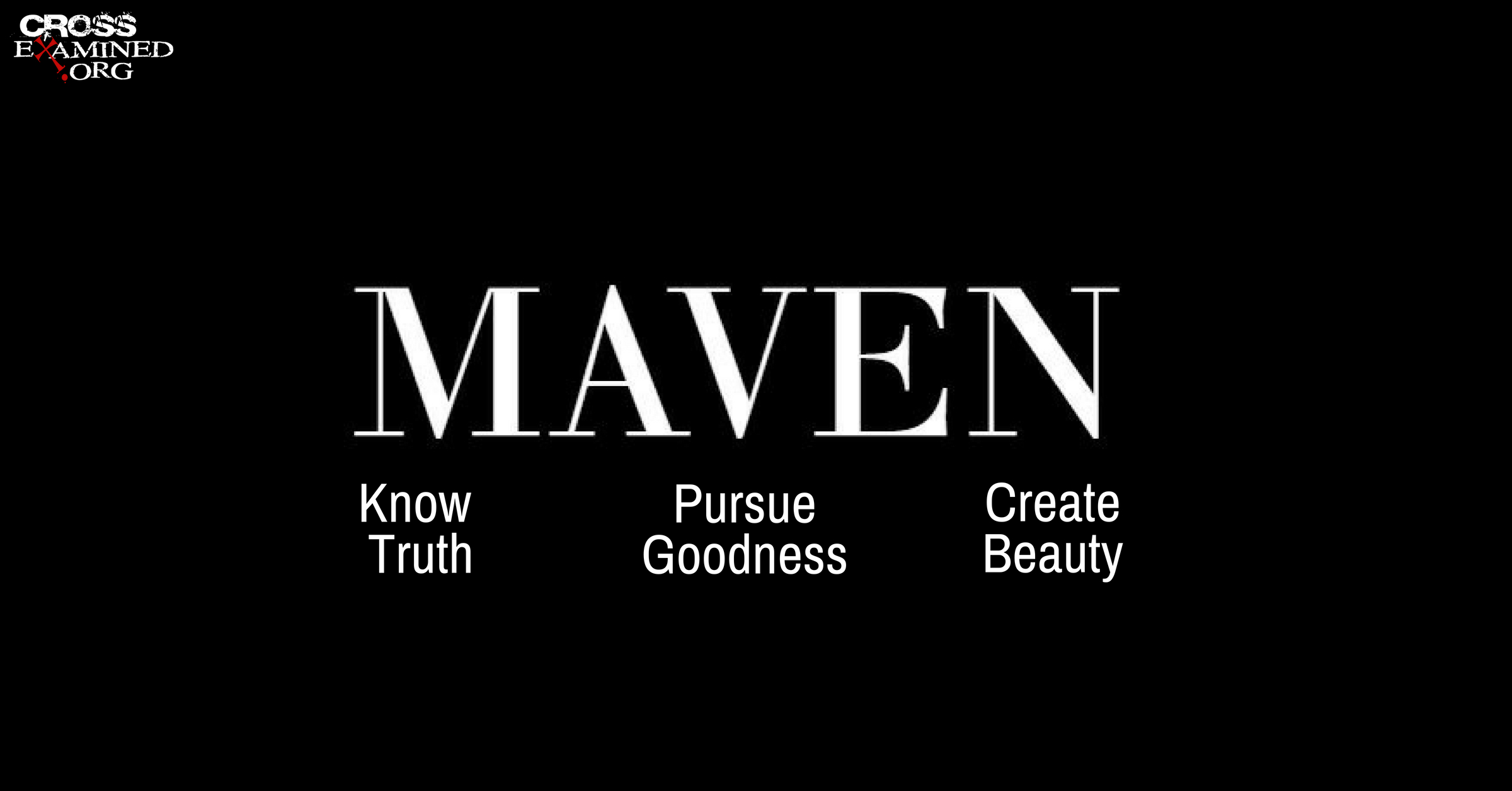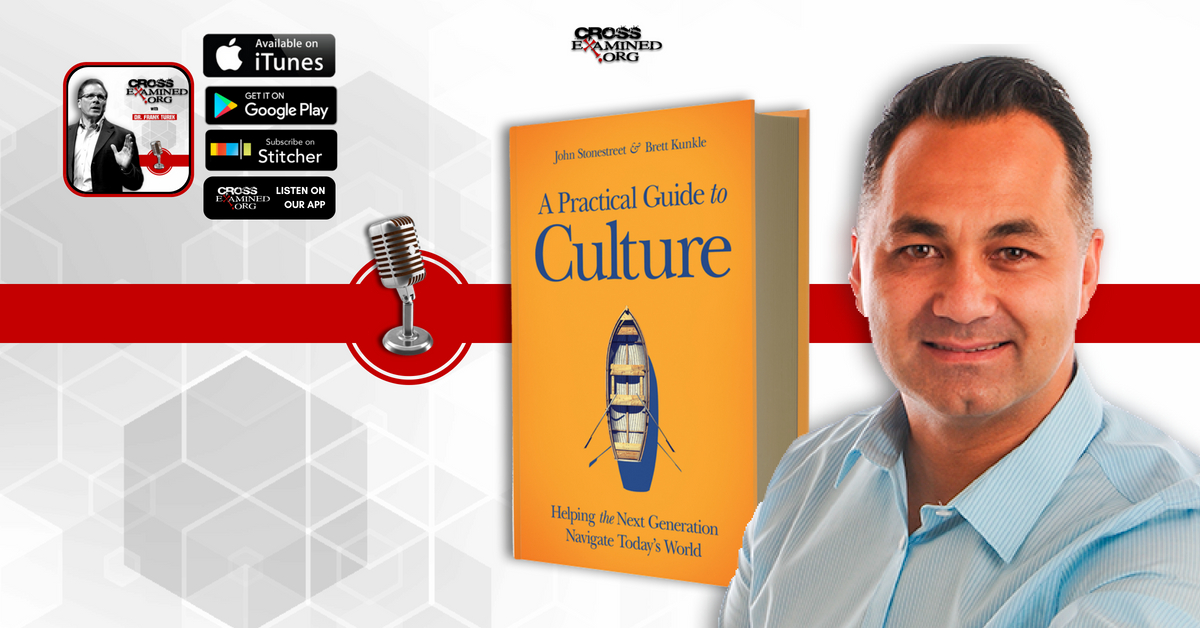The debate about the proper interaction of science and theology is raging as much as it has ever been. Hot tempers fly that result in ice-cold relationships. For as much discussion and debate that takes place, it seems that nothing is being accomplished. For those caught in the middle, questions still remain unanswered:
- What do we do when science contradicts our theology, or our theology contradicts science?
- Are they allowed to contradict?
- If not, which should I choose?
- Can’t they just agree to disagree?
These are all questions that shaped my spiritual struggle several years ago. I was constantly told that I could not trust science because it contradicted my theology, and at the same time I was told that I could not trust theology because it denied science. I felt like I had a choice: live a double life allowing one source of truth (religion) in one area of reality, but not allowing it relevance in the other areas. Or I could completely deny one of them as a valid source of truth, giving up my theology completely, or giving up science completely.
How could I live what I do not believe, and how could I deny what I know to be true? These further haunting questions demanded answers yet seemed unanswerable. Neither hypocrisy nor denial are very appealing traits. Unfortunately, these are often presented as the only options available in our search for the true worldview. In this post, my goal is to present a compelling alternative that grants that science and theology are valid sources of truth that often overlap in the aspects of reality that they claim to explain. I will also put forth a method for dealing with conflicts in the overlapping areas and explain the liabilities of not dealing with such conflicts.
The Overlap
I believe that science and theology are fully compatible with one another. Both often speak about the same features of reality, but because we are not omniscient, we often find that our science and our theology contradict one another. If we wish for our theology to inform our understandings of creation (scientific models) and behavior towards each other and the rest of creation (ethics- 2 Timothy 3:16), overlap is necessary. Likewise, if we wish for our science to inform our theology (Romans 1:20), overlap is necessary. If we are to believe that overlap is necessary, then contradictions cannot exist between science and theology. This will be the starting point for this alternative view. The next step is to make an important distinction.
Interpretation and Raw Data
The next step to this view is the distinction between raw data and the interpretation of the raw data. When we are attempting to reconcile science and theology, we are attempting to reconcile the raw data that each one interprets. For science that raw data is nature, and for theology that raw data is the scriptures (original language, where possible). Every piece of raw data must be interpreted. By interpretation, I mean that we examine the raw data and explain it in light of the other raw data that we have. It is common, and incorrect, for someone to confuse nature (the raw data) with science (the interpretation) and/or scripture (the raw data) with theology (the interpretation). The raw data is what is necessarily infallible (to use the religious term), while our interpretation (in virtue of our lack of omniscience) is necessarily fallible, but not necessarily false. The processes described below will help our interpretation of nature (science), and our interpretation of scripture (theology) reflect the full, true understanding of each.
Nature and Science
Science is very dependent upon the assumption that the universe is consistent. No two features of reality will contradict one another, and under the same circumstances, observations will be repeatable. If experiments or studies are conducted in the same way, but they yield data that can only be interpreted to conflict with current science (interpretation of other data), the scientists will repeat again to find data that can be interpreted as consistent with current science and look for the unique factor in each instance of the experiment that yielded the data with the conflicting interpretation. All data that is found is interpreted in light of the rest of the data already yielded. If an experiment or observation (after repeated and thoroughly investigated multiple times) still yields data that demands an interpretation contrary to science, a reinterpretation of past data is necessary (a change in the science results). The process repeats for any and all new data that comes. Here is a flowchart to give a visual of this process:
Even though it is common for data to come that is compatible with current science, there is rarely a single interpretation that is compatible. Multiple compatible interpretations leads to the creation of multiple models of a phenomenon. Each one takes interpretations that are still “on the table” (since they have not been eliminated by other data yet), and use possibilities to make predictions about future data. As more data become available, models that predicted conflicting results are adjusted (interpretations are changed) to accommodate the only possible interpretations of the new data (if multiple interpretations exist, this can spawn variations of the model) or are abandoned completely because the conflict cannot be reconciled with the possible interpretations of the other data that are compatible with the model. While models are weeded out as accurately explaining reality, more detailed models are proposed, and the process starts all over again. Put plainly, nature interprets nature to eliminate incorrect scientific view and highlight possibly correct ones.
Scripture and Theology
Dealing with scripture (the Bible) is very similar to the process of dealing with nature described above. Many theologians begin by accepting that scripture is the inerrant word of God, who cannot lie. This means that the same consistency that allows for testing of scientific models exists to test theological views. No two scriptures contradict one another, so no correct interpretations of two scriptures can contradict one another. If it is found that a theological view holds an interpretation of a scripture that contradicts an interpretation of another, the interpretation of one of them (if not both) is incorrect, and reinterpretation is required. In the development of a correct theological interpretation of scripture, this process continues. Here is the flow chart (notice how similar it is to the one above):
Just like with science, multiple interpretations of scripture do abound, and even after going through this process to make certain that all scripture is taken into consideration and no contradictions exist in the view, several possible interpretations of scripture may still be valid. These are all considered compatible with scripture. Since there are multiple views compatible with the raw data of scripture, many different theological views exist within Christianity. As more archaeological artifacts are recovered and analyzed and more historical and linguistic studies are conducted regarding the original content of scripture, possible interpretations of scriptures can be ruled out or ruled in. This allows for adjustment or abandonment of theological views (if possible interpretations are ruled out), and allows for the recognition of compatibility of other theological views (if possible interpretations are ruled in). As more theological systems are weeded out as accurately reflecting scripture, more detailed interpretations are offered and tested against still more scholarship. Simply put, scripture interprets scripture to eliminate incorrect theological views and highlight possibly correct ones.
Worldviews and Reality
Both systems depend upon ontological consistency (nature does not contradict nature and scripture does not contradict scripture) that demands epistemology consistency (interpretations of nature cannot contradict other interpretations of nature and interpretations of scriptures cannot contradict interpretations of other scriptures). However, neither of these systems are complete.
While science may point to metaphysical reality, it cannot directly observe it. While theology may speak broadly about nature, it lacks much minute details. Both science and theology on their own have many views that are evidentially, equally valid. As a Christian, I believe that God created the universe and inspired scripture. I believe that God is not deceptive; thus his works (nature) do not contradict (the ontological foundation for science’s presupposition that nature is consistent) and his words (scripture) do not contradict one another (the ontological foundation for Biblical inerrancy). Here’s the simple flow chart:
Since both nature and scripture come from God, the two of them do not contradict. If we come to an interpretation of nature that contradicts an interpretation of scripture, one of the interpretations (if not both) is incorrect. We must reevaluate our interpretation of both in light of the other raw data to find the proper interpretation of reality. If all the data in science can be interpreted consistently in, say, ten different ways, but seven are incompatible with any compatible interpretation of scripture, the Christian must throw away those seven interpretations of nature. Likewise, if we have eight consistent interpretations of scripture, yet only three of those interpretations are compatible with nature, we must remove the other five (otherwise biblically compatible) interpretations from the table of accurately explaining reality. That would leave us with three possible interpretations of reality between nature and scripture. Now we have four points of interpretive interaction with nature and scripture:
- Nature interprets nature
- Scripture interprets scripture
- Scripture interprets nature
- Nature interprets scripture
Ultimately, this results in “reality interprets reality” to yield a correct worldview. Here is the completed flowchart that visually details the process:
This is certainly a rigorous and challenging but rewarding process. As scholarship in the sciences and humanities are constantly making new discoveries that provide more insight into the proper interpretation of both nature and scripture, the Christian is provided with more information; some of which fits easily into the Christians interpretations of nature and scripture. However, it is common that data will arise that challenges interpretations of nature and interpretations of scripture. The Christian must not ignore the data by refusing to reinterpret their views of nature or scripture.
The Dangers of Denial
When we hold an interpretation of nature (science) that does not reflect reality, we will be challenged by the raw data of scripture. When we hold an interpretation of scripture (theology) that does not reflect reality, we will be challenged by the raw data of nature. An unwillingness to reinterpret raw data of either nature or scripture, in light of no compatible interpretation from the other betrays our commitment, not to truth, but to tradition. Tradition is based on interpretation, which is necessarily fallible because we are not omniscient. This is dangerous to both evangelism and discipleship.
Dangers to Evangelism
When skeptics see that we hold fast to tradition (even though they may be doing the same thing) between nature and scripture (while we also claim that both come from the same honest God), it is no surprise that they are skeptical of our views. Reality has no contradiction in it, and they know that. If a worldview has even one internal contradiction, it cannot be the correct view of reality.
Those who read this blog often know that I interact with many internal discussions to Christianity because I believe it is important that we are defending a correct worldview, not just generally, but specifically. If people are looking for a reason to reject a general worldview, they will look at the details of certain views within that worldview to find contradictions with reality. When those contradictions are discovered, they become a stumbling block to the skeptic. And the Christian who promotes such contradictions (despite their noble intentions) become a liability to completion of the Great Commission. A willingness to reinterpret raw data of nature and scripture allows skeptics to understand that we are committed to discovering the truth and that if a challenge is valid, it will be addressed in a way that contradiction is removed from our worldview. When contradiction with reality does not exist in our presented worldview, there is no logical reason to deny its truth. Rather the truth must be suppressed.
Dangers to Discipleship
Of course, the dangers do not only end with evangelism. Our own relationship with God is limited when we refuse to acknowledge contradiction in our worldview. I want to be clear: I am NOT saying that a Christian without a perfect worldview cannot know God correctly, we can. However, every detail that we have wrong about God and what He has done places a limit on our ability to worship Him in spirit and in truth. Our willingness to recognize and abandon incorrect views within our worldview will be rewarded with a deeper understanding of more of God’s attributes and His works. This results in a more profound and rewarding worship of our Creator. A worship of our Creator that is based on a false idea of who He is or what He has not done, is not true worship.
These Dangers Plague Us All (Conclusion)
Since no person is omniscient, I am speaking to all of us (including myself). If we refuse to reinterpret when all attempts to find logical consistency fail, our dedication to a false view of reality will limit our effectiveness for the Kingdom and will limit our relationship with our Creator. God has given us multiple sources of revelation (nature and scripture) and has endowed us with minds capable of using logic to bring both revelations together to discover the truth of reality. God is brought glory when we commit to discovering truth — when we refuse to allow dearly held traditions to stand between our knowing who God truly is and our accurate representation of Him to the world.
Original Blog Source: http://bit.ly/2OAjkS9


